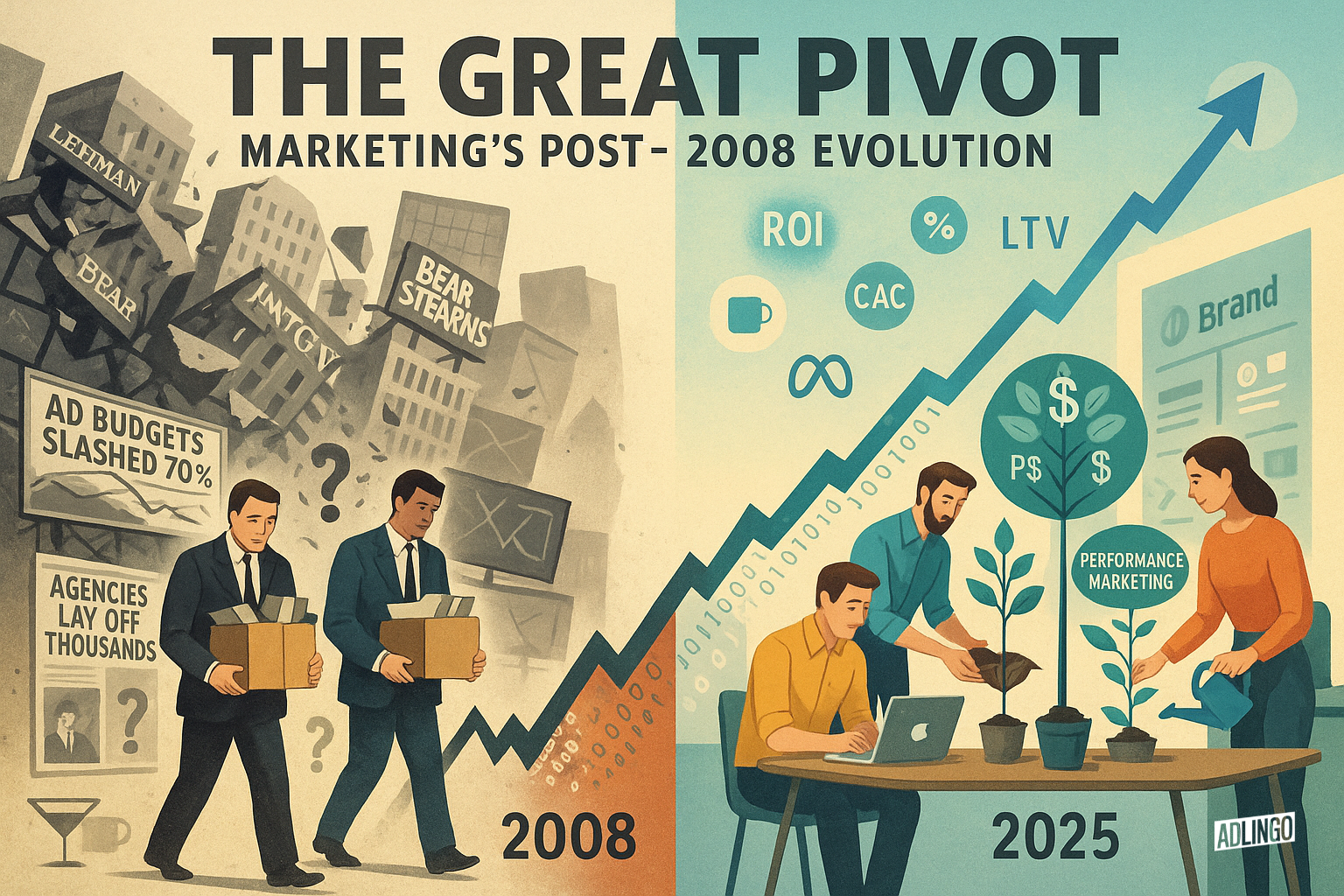If you're heading off to college this fall with dreams of working at a big agency, we need to talk about how that industry has fundamentally changed. The traditional agency career path your professors will describe? It's becoming as outdated as Blockbuster video.
Agencies just spent $1 billion on AI transformation while cutting 15,000 jobs. But more importantly, the real action in marketing has moved brand-side, and that's actually great news for your career.
The agency training ground has moved
For decades, the advice was simple, easy. Start at an agency, learn the ropes, then maybe go brand-side. That made sense when agencies were where innovation happened and brands outsourced their thinking.
That world is gone.
- 73% of brands have brought creative in-house
- Major brands are building internal agencies
- The strategic work happens where the budgets live: at brands
Your professors might not know this yet. They'll tell you stories about late nights at Ogilvy or brilliant campaigns at Wieden+Kennedy. Those agencies still exist, but they're not the career launchpads they used to be.

A lesson from 2008

I watched the 2008 financial crisis destroy entry-level marketing careers. Fresh communications grads showed up to interviews only to find hiring freezes, rescinded offers, and doors slamming shut across media, advertising, and marketing.
The numbers were brutal.
U.S. advertising spending dropped 13% overall, with print down 27%. Only 64% of 2008 graduates had full-time jobs within a year, compared to 79% for pre-recession grads.



